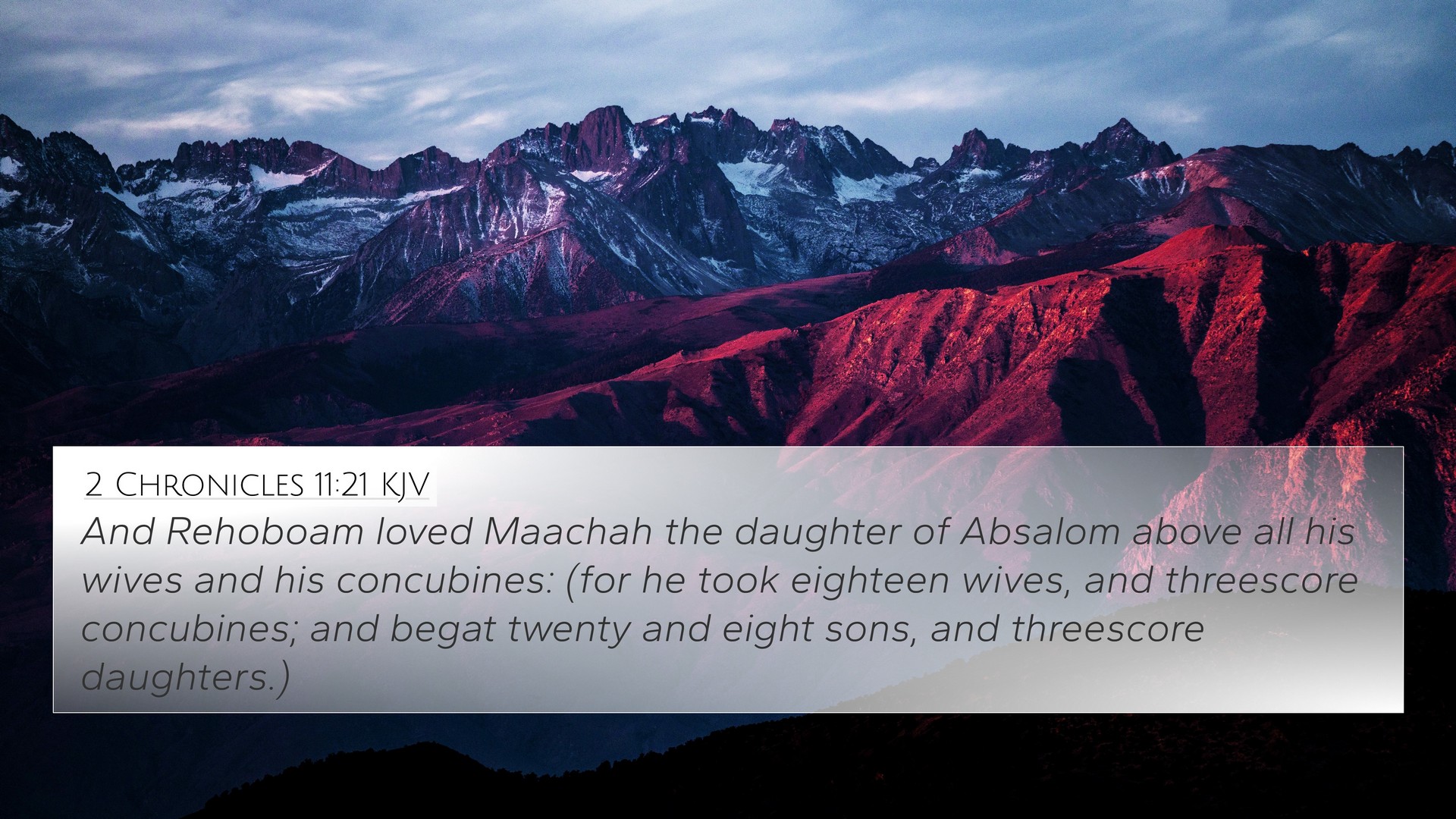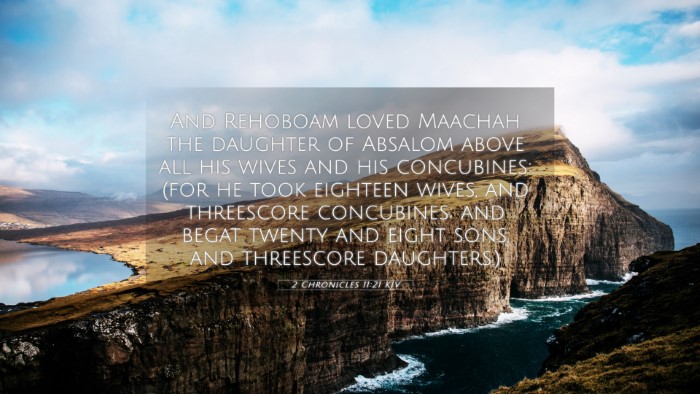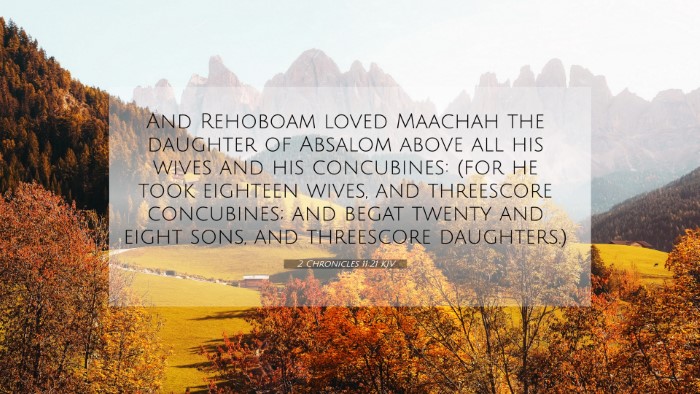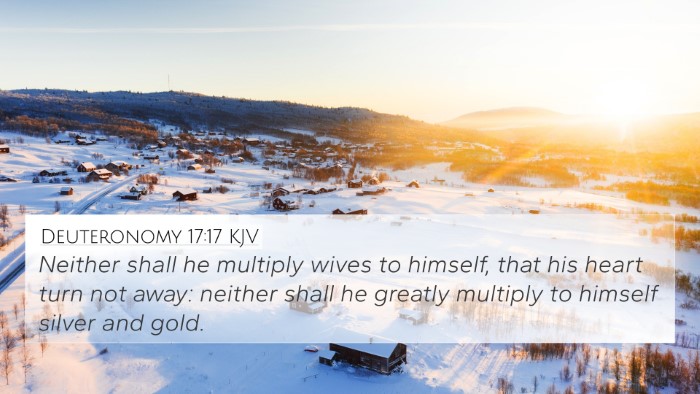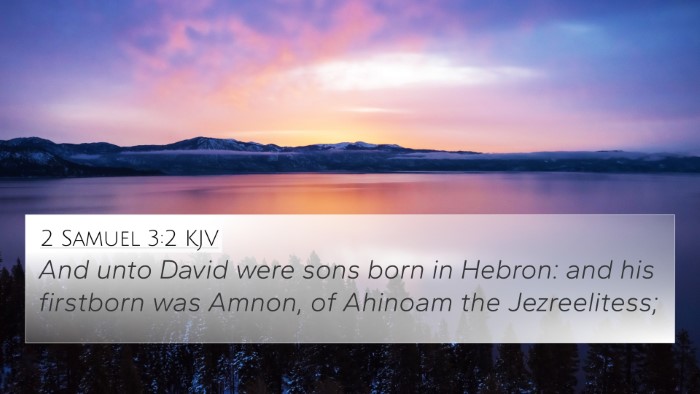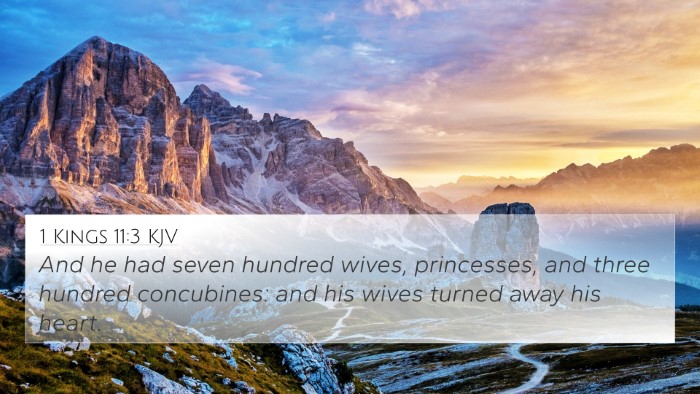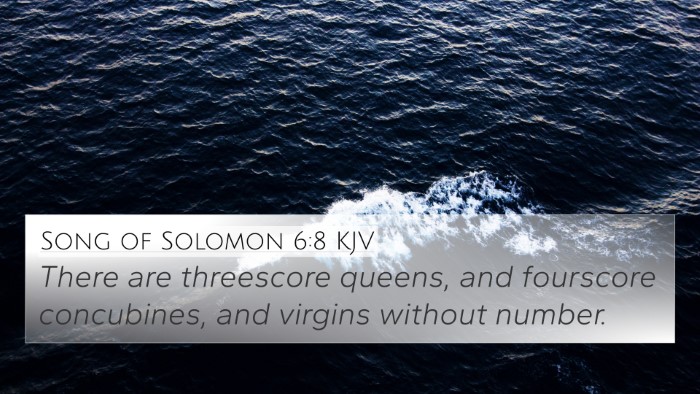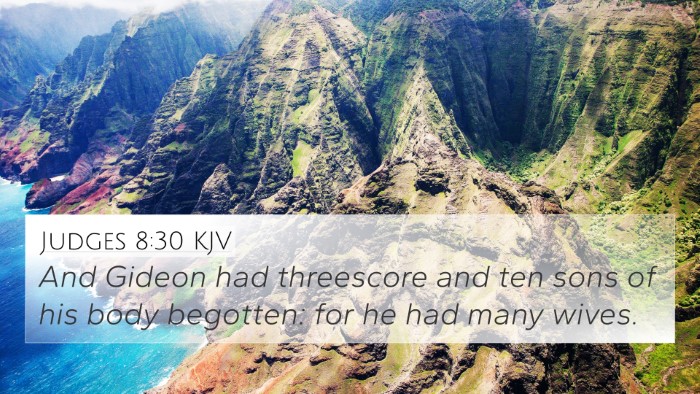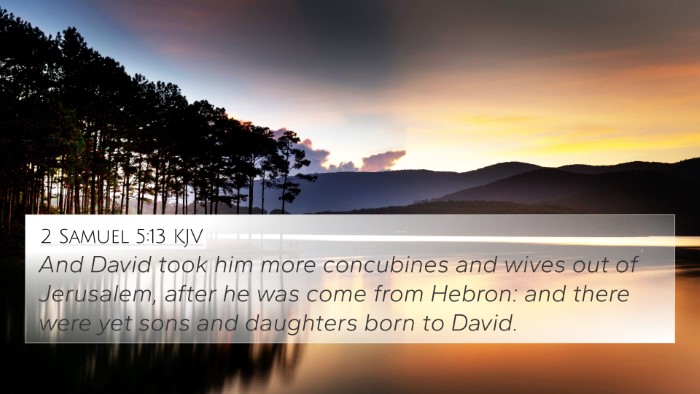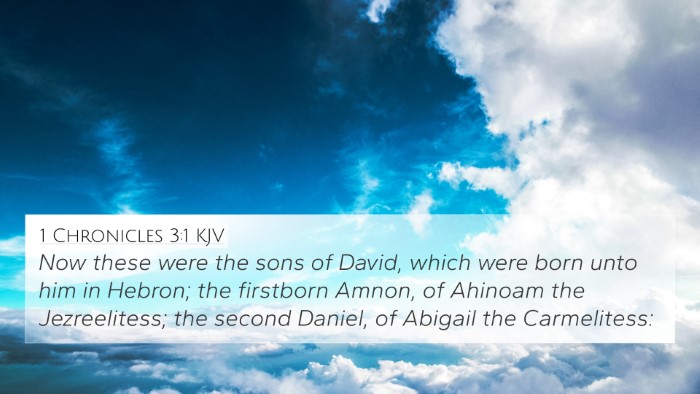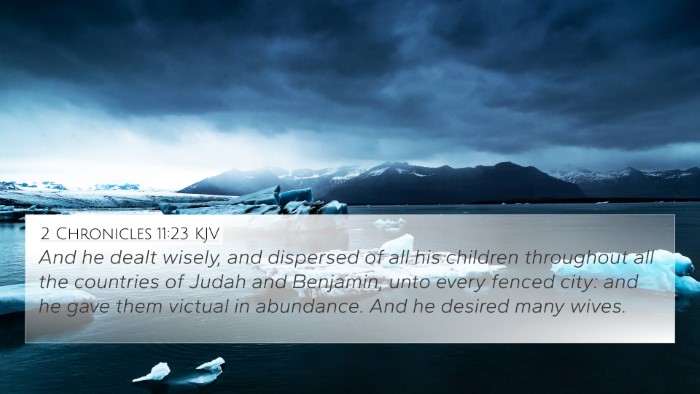Understanding 2 Chronicles 11:21
2 Chronicles 11:21 states: "And Rehoboam loved Maachah the daughter of Absalom above all his wives and his concubines: (for he took eighteen wives and threescore concubines; and begat twenty and eight sons, and threescore daughters)." This verse provides insight into the personal life of Rehoboam, highlighting his love for Maachah and his extensive family. Let's explore its significance through various public domain commentaries.
Commentary Insights
Matthew Henry Commentary:
Henry emphasizes the importance of Rehoboam's choice in Maachah, noting that she was the daughter of Absalom, which connected the line of David with the troubled past of Absalom. He points out that this relationship exemplifies Rehoboam's inability to learn from his father Solomon's experiences regarding many wives and their influence.
Albert Barnes' Notes:
Barnes highlights Rehoboam's large family and how it reflects on his legacy as king. He acknowledges the potential for political alliances through marriage but suggests that this may have also contributed to internal conflict as seen throughout Israel's history. The mention of numerous sons and daughters illustrates the grandeur and complexity of the royal house.
Adam Clarke's Commentary:
Clarke offers additional context on Maachah's heritage, suggesting that her background might have been advantageous for political alliances. He cautions against the pitfalls that come with polygamy observed in Rehoboam's reign, suggesting it might lead to corruption and disunity.
Bible Cross-References
This verse can be connected with several others that enhance its interpretation. Here are 10 cross-references relevant to 2 Chronicles 11:21:
- 1 Kings 14:21 - Discusses Rehoboam's reign and contrasts his rule with that of Solomon.
- 2 Samuel 15:7 - Relates to the character of Absalom, Maachah's father, and his rebellion.
- 1 Kings 11:3 - Illustrates Solomon's choices regarding many wives, leading to his downfall.
- Deuteronomy 17:17 - A warning against kings multiplying wives, which Rehoboam has failed to heed.
- 2 Chronicles 9:3-4 - Highlights the wealth and structure of Solomon's court, contrasting it to Rehoboam's situation.
- 1 Chronicles 3:10-12 - Genealogy of Rehoboam's descendants, showing the lineage of his sons.
- Proverbs 5:18-19 - Advises on marital love, subtly contrasting Rehoboam's many relationships.
- 1 Kings 12:1 - Discusses Rehoboam's ascension to kingship, setting the stage for his family dynamics.
- 2 Chronicles 11:23 - Further elaborates on Rehoboam's family and their roles, hinting at political influences.
- Ecclesiastes 7:25-29 - Reflects on the nature of wisdom and folly, echoing issues seen in Rehoboam's leadership choices.
Thematic Connections
The connections between Bible verses allow us to understand the nuances of Rehoboam’s choices and consequences. By examining cross-references, we can analyze the themes of polygamy, legacy, and leadership. These themes resonate not only within the narrative context of the Old Testament but also draw parallels to New Testament teachings about marriage and familial structure.
Utilizing tools for cross-referencing can lead to a more comprehensive understanding of Scripture. For instance, through a Bible concordance or Bible cross-reference guide, one can uncover additional layers of meaning, making connections across different books and testaments—whether they be thematic, contextual, or moral.
Application and Reflection
In understanding 2 Chronicles 11:21 and the character of Rehoboam, modern readers can reflect on the importance of wise choices in familial relationships and the potential pitfalls of neglecting the wisdom provided in scripture. Recognizing the cross-references provides deeper insight, educating us on impacts that seemingly personal decisions can have on broader spiritual and community levels.
Moreover, this verse serves as a foundation for further study about how familial ties and political alliances shaped Israel's history. In analyzing these relationships and the resulting consequences, we can better grasp the overarching narrative of redemption woven throughout the Bible.
